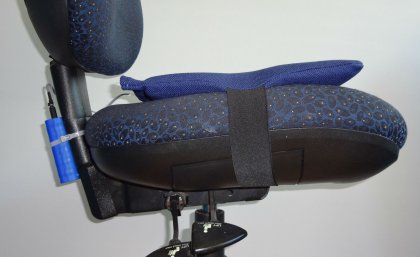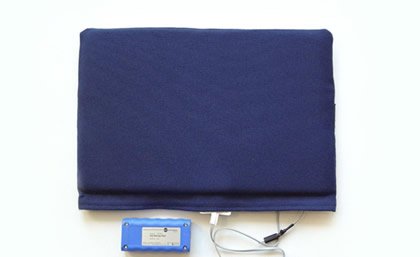

University of Queensland researchers have been awarded $136,000 for two innovative ideas designed to get people off their seats to combat ‘chair disease’.
‘Chair disease’, or sitting for too long at work or home, increases the risks of heart disease, diabetes, obesity and back, neck, wrist and shoulder injuries.
Two Heart Foundation Vanguard grants to UQ will support the feasibility testing of two innovative concepts in health services.
They are the only two such grants awarded in Queensland this year.
UQ School of Human Movement Studies researcher Dr Nicholas Gilson was awarded $73,390 to test a ‘Sitting Pad' device that uses a prompt to alert workers to stand up more regularly.
“The Sitting Pad was designed and developed by our UQ team, and this project will enable us to test the intervention capabilities of the device on office workers in a workplace setting,” Dr Gilson said.
“Fitted to office chairs, the device will provide second-by-second, day-by-day, real-time feedback to prompt breaks in prolonged periods of desk-based sitting.
“A feedback mechanism built into the sitting pad is attached to a sensor which can be set to sound an alarm if a person has been sitting for a predetermined amount of time.
“We are aiming to accurately measure and understand occupational sitting behavior in order to introduce effective and individually tailored intervention methods to improve employee health, wellbeing and workforce productivity.”
UQ’s School of Population Health researcher Dr Genevieve Healy was awarded $62,390 to assess whether the LUMOback posture sensor and mobile application can be a simple, effective, and acceptable way to reduce sitting time.
The device, worn around the waist, monitors sitting, standing, walking and running time.
UQ Faculty of Health Sciences Associate Dean (Clinical) Professor Gerald Holtmann said both projects involved innovative research concepts.
“The funding is a significant achievement that will assist our researchers to address the effects sitting down for too long, which can include heart disease, diabetes, obesity and back, neck, wrist and shoulder injuries,” Professor Holtmann said.
“It’s exciting to see our pioneering researchers leading the way in Queensland with their innovative concepts that will ultimately improve the health of our community.”
Media: Kirsten O'Leary, Media and Communications Officer, Faculty of Health Sciences, 07 3346 4713 or Kirsten.oleary@uq.edu.au
.jpg)









